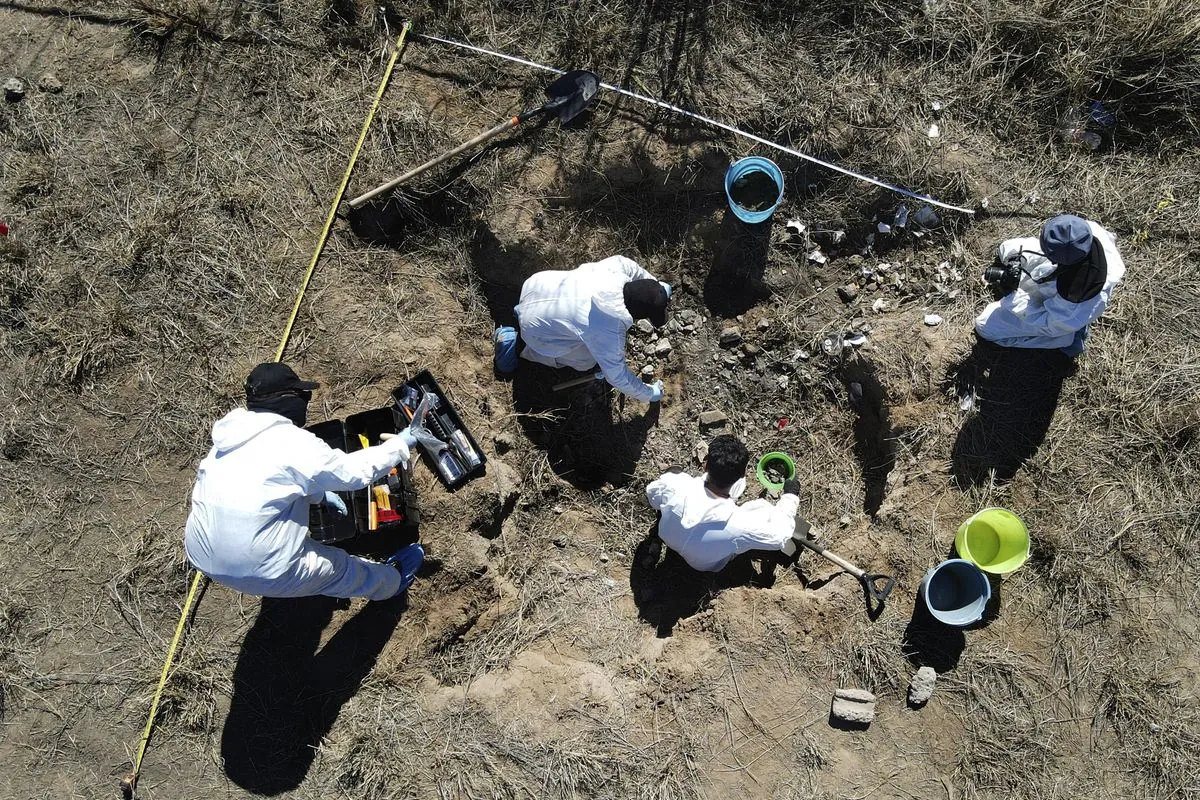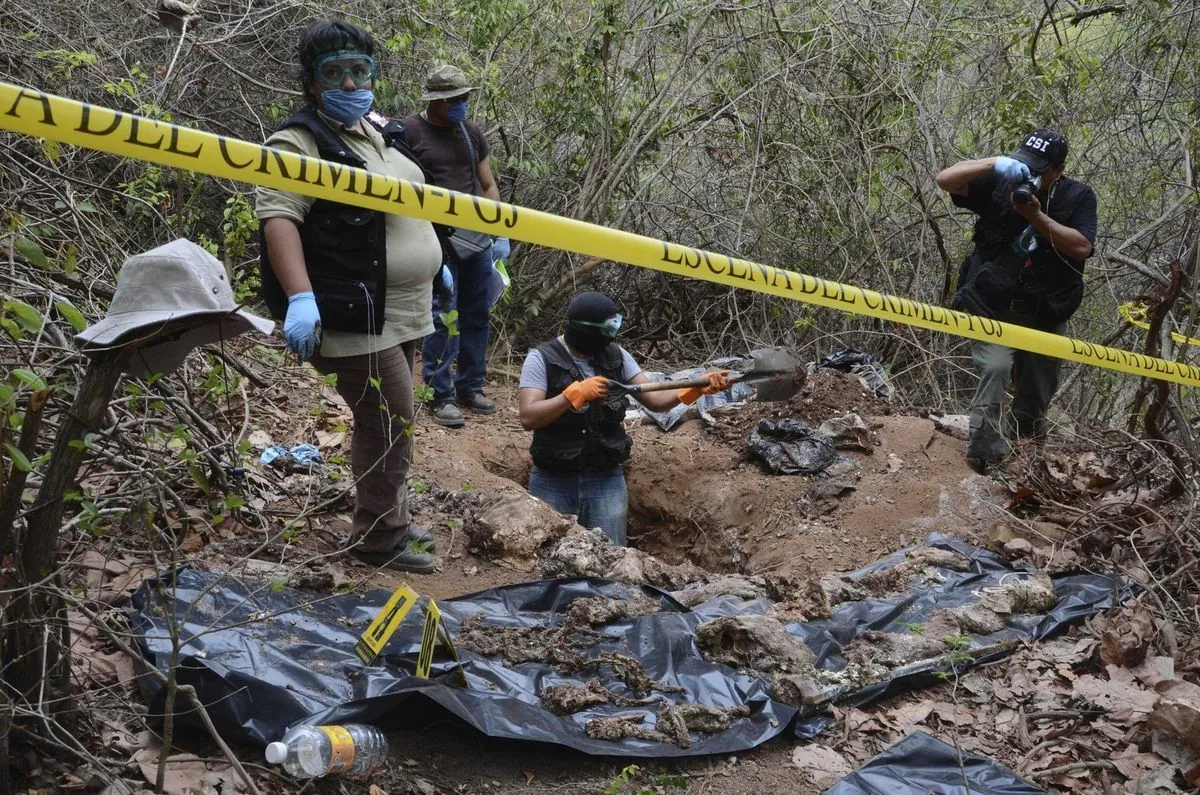Mexican Cartel Members Sentenced for Brutal Bus Passenger Massacre
Eleven drug cartel gunmen received 50-year sentences for a horrific 2010-2011 massacre of 122 bus passengers in Mexico. The case, involving forced death matches, took nearly a decade to prosecute.

In a significant development in Mexico's ongoing battle against drug cartels, eleven members of a notorious criminal organization have been sentenced to 50 years in prison. The convictions, announced on August 21, 2024, relate to a horrific massacre that occurred between 2010 and 2011, involving 122 bus passengers in the northern state of Tamaulipas.
The case, which took approximately 7-9 years to prosecute, sheds light on one of the most gruesome chapters in Mexico's drug war. The convicted individuals, arrested between 2015 and 2017, were found guilty of orchestrating and participating in a series of brutal killings that shocked the nation and the international community.

According to prosecutors, members of the now-fragmented Zetas cartel intercepted buses traveling to border cities such as Reynosa and Matamoros. The cartel, originally formed by former Mexican special forces soldiers in the late 1990s, was known for its extreme violence and diversified criminal activities. They targeted these buses under the suspicion that their rival, the Gulf Cartel, was sending reinforcements to contested territories.
The victims, primarily young males, were forcibly removed from the buses and subjected to unimaginable cruelty. In a twisted recruitment tactic, some passengers were offered a chance to join the cartel by proving their worth in deadly combat against other innocent travelers. Those who refused were executed.
"The excavation of mass graves revealed hundreds of bodies, many with crushed skulls. The discovery of sledgehammers at the burial sites corroborated the horrific accounts of forced death matches."
The true extent of this tragedy came to light in 2011 when authorities uncovered 48 clandestine graves containing 193 bodies in Tamaulipas, a state sharing a 370 km border with Texas. Most victims had their skulls crushed, and many were identified as Central American migrants, highlighting the vulnerability of those traveling through Mexico to reach the United States.
The case also exposed the pervasive influence of drug cartels in the region. Bus companies, under threat from these criminal organizations, failed to report the disappearances until unclaimed luggage began accumulating at border city terminals. This silence allowed the atrocities to continue unchecked for an extended period.
It's worth noting that this massacre was not an isolated incident. Around the same time, the Zetas cartel was responsible for the murder of 72 migrants near San Fernando, a town of approximately 60,000 residents. A lone survivor reported that the migrants were killed after refusing to join the cartel.
These events occurred against the backdrop of Mexico's broader drug war, which has claimed over 150,000 lives since 2006. The convictions represent a step towards justice, but also highlight the challenges faced by Mexico's criminal justice system, which underwent significant reforms in 2008.
As Mexico continues to grapple with cartel violence, this case serves as a grim reminder of the human cost of the drug trade and the importance of ongoing efforts to combat organized crime in the region.


































